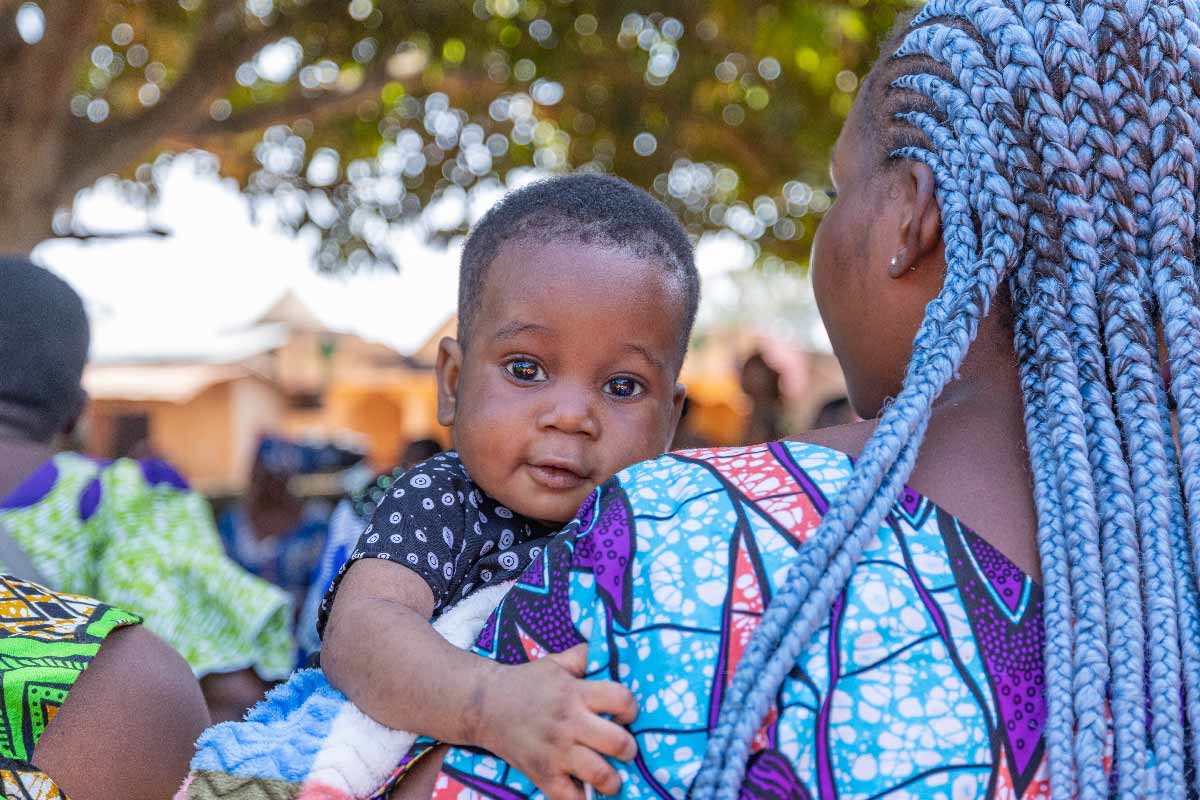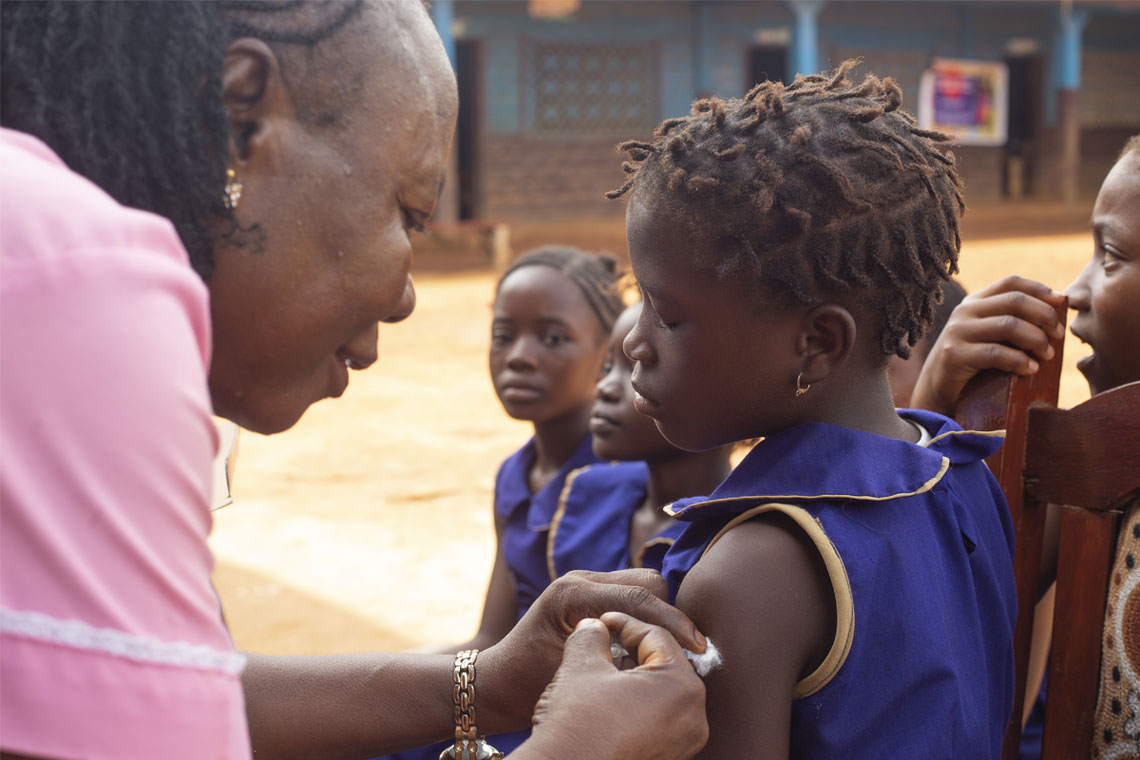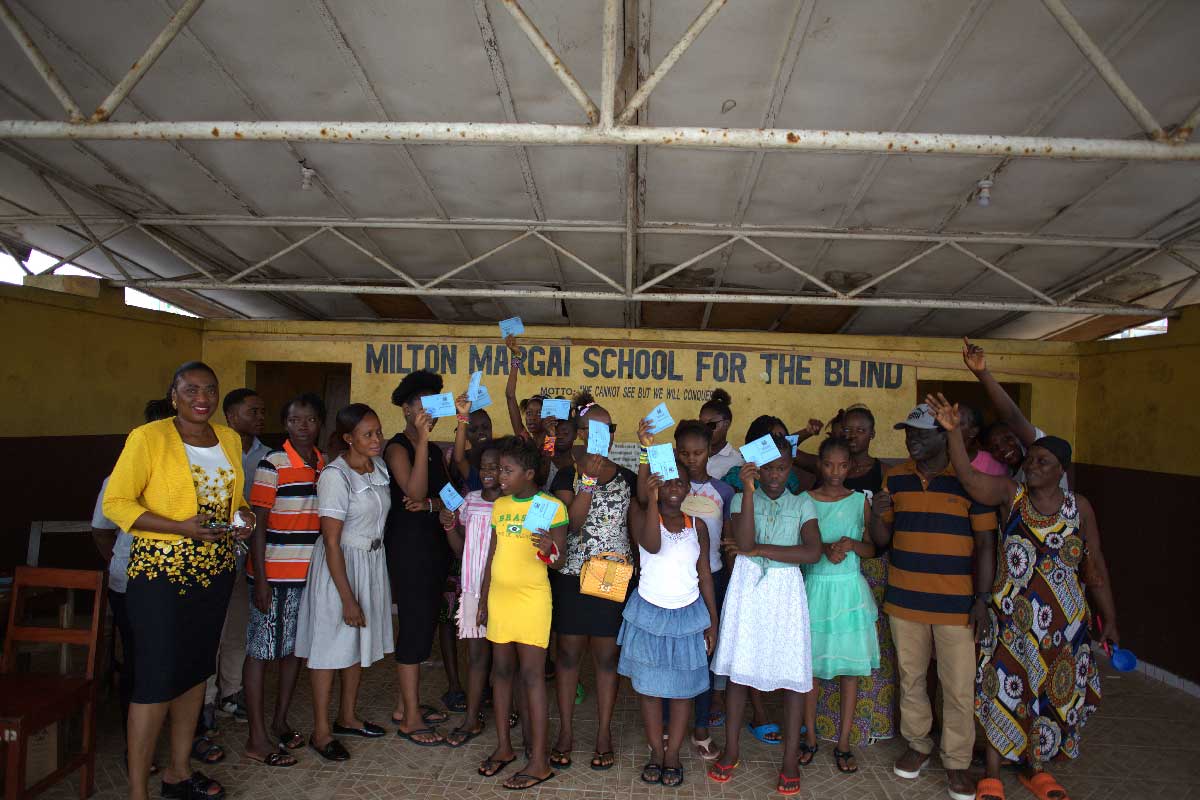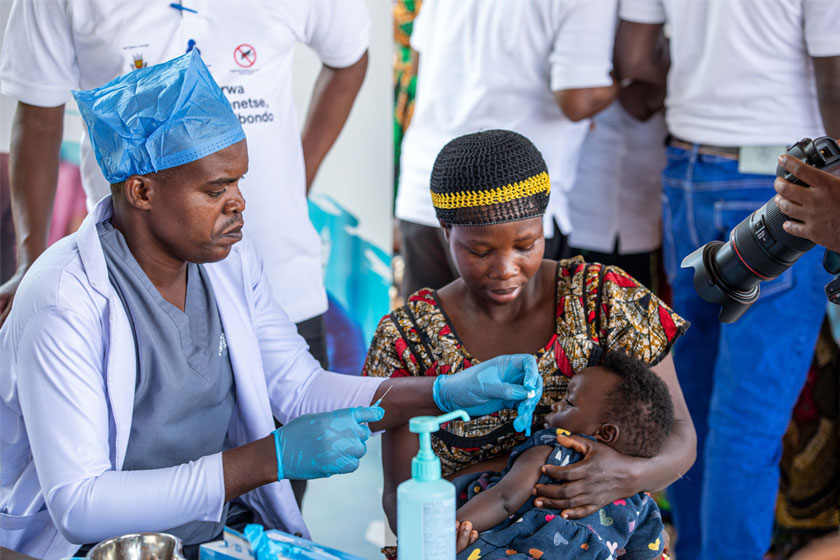Gavi's impact in Africa since 2000
Through Gavi's partnerships with 41 African countries over the past 25 years, more than half a billion children have been reached through routine immunisation in Africa with Gavi support.
- 25 November 2025
- 4 min read
- by Gavi Staff

Gavi’s mission is to save lives and protect people’s health by increasing equitable and sustainable use of vaccines. Our work is driven by country needs and priorities. Gavi supports countries to strengthen primary health care (PHC) through innovative partnerships that address challenges of access to immunisation, including gender-related barriers.
By improving access to new and under-used vaccines for millions of the most vulnerable children, Gavi, the Vaccine Alliance is transforming the lives of individuals, helping to boost the economies of countries and making the world safer for everyone. By leveraging the strength of the Vaccine Alliance to improve child health and PHC, we are working in support of the African Union (AU) Agenda 2063 and the Sustainable Development Goals (SDGs).
Immunisation protects the health of communities, reduces the number of people forced into poverty, and gives children an equal chance of a healthier and more productive future.
Gavi’s support helps improve global health security by reducing the risk of infectious disease outbreaks that have epidemic and pandemic potential. Crucial to this engagement is Gavi’s support for emergency vaccine stockpiles to protect against the epidemic-prone diseases cholera, Ebola, meningococcal meningitis and yellow fever.
Overview: Gavi's impact in Africa (2000–2024)
- 41 country partners
- 20 infectious diseases are prevented by vaccines in Gavi’s portfolio in Africa as of November 2025 – including Ebola, malaria and mpox
- >US$ 15.2bn disbursed in Gavi-supported African countries
(57% of overall Gavi disbursements) - ~US$ 1.3bn co-financed by African countries since 2008
- >500m children reached through routine immunisation in Africa
- >13.7m future deaths averted in Africa1
World’s first malaria vaccines
As of November 2025, 24 countries in Africa have introduced malaria vaccines into routine immunisation with Gavi support: Benin, Burkina Faso, Burundi, Cameroon, Central African Republic, Chad, Côte d’Ivoire, Democratic Republic of the Congo, Ethiopia, Ghana, Guinea, Kenya, Liberia, Malawi, Mali, Mozambique, Niger, Nigeria, Sierra Leone, South Sudan, Sudan, Togo, Uganda and Zambia.
Driving progress through partnership
Investing in health care is essential to sustainable development: as children become healthier, they, their families, communities and countries are more able to be economically prosperous and socially stable. Through our current partnerships with 41 African countries, Gavi supports routine immunisation programmes to strengthen access to and delivery of PHC as a pathway towards achieving Universal Health Coverage (UHC). During African Vaccination Week (AVW) 2024, partners celebrated 50 years of the Expanded Programme on Immunization (EPI) – the impact of which Gavi was established in 2000 to expand. Click here to read more about these partnerships.
Have you read?
Combating cervical cancer
From 2014 through 2024, more than 43.7 million girls in Africa have been immunised against human papillomavirus (HPV), the main cause of cervical cancer, and 24 African countries had introduced the HPV vaccine with Gavi support.
Sustainable financing
African governments have increased considerably their co-financing of Gavi-supported vaccines over the last ten years – from US$ 15 million in 2010 to more than US$ 175 million in 2024. This sustained investment is in alignment with the Addis Declaration on Immunization commitment to “increase and sustain domestic investments and funding allocations for immunization.” By end 2024, African governments had invested nearly US$ 1.3 billion in co-financing of Gavi-supported vaccines. In July 2024, the Abidjan Declaration in Côte d’Ivoire marked a new era of sustainable immunisation in Africa – read more in this article by Gavi CEO Dr Sania Nishtar, writing in The Africa Report.
This will support countries to mobilise domestic resources for health and improve health spending, while enabling development partners and countries to align on joint financing.
Addressing inequities in immunisation, reaching zero-dose children
By end 2024, Africa was home to more than 7.8 million ‘zero-dose’ children who had not received even a single vaccine shot; 1.5 million of these children live in countries facing fragility. To reach them, Gavi’s 2021–2025 strategy brought a much stronger focus on reaching the most marginalised by strengthening PHC systems; building and sustaining community demand; addressing gender-related barriers; and bringing innovative approaches to ensure that immunisation services reach these children
Immunisation protects the health of communities, reduces the number of people forced into poverty, and gives children an equal chance of a healthier and more productive future.
In Africa, continued commitment by country governments and local authorities; support from Vaccine Alliance partners; civil society engagement; and the voices of vaccine champions will be pivotal to attaining vaccine equity – both between and within countries.
1. Based on estimates of impact from the Vaccine Impact Modelling Consortium (VIMC) using the 2024 WHO/UNICEF Estimates of National Immunization Coverage (WUENIC), July 2025








